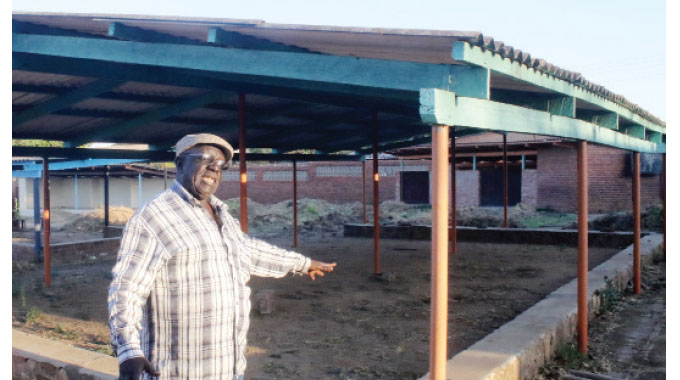Brays that made her fall in love with donkeys

Chronicle Writer
The crack of dawn, before the Cock-a-Doodle-Doo of roosters and early morning birds, was never Claire Einhorn’s favourite time of day.
Instead, she preferred to sleep until the mid-day sun. Ms Einhorn fell in love with a donkey’s brays, one of the most unappreciated beasts in history, Biblically and in any history book.
Ms Einhorn who runs Equine Sanctuary (MARES) said donkey owners in Bulawayo must desist from letting their animals stray onto the streets as this fuels stock theft.
The MARES founder and director said the sanctuary was an umbrella preserve that catered for various animals.
“The sanctuary caters for various animals but mostly for donkeys. It is the most unappreciated animal in history but has been the one that has done the most. We have donkeys that suffer various ailments and those that we just love. And as you can see, they are friendly to humans,” she said.
Ms Einhorn said some of the donkeys are used in cases of stock theft and are abandoned with bruises and wounds.
“Most of these babies are taken off the streets, they are used in cases of crime and are dumped with wounds or near death. Some are blind, some are deaf and we make sure we cater for them all,” said Ms Einhorn.
She said the sanctuary also catered for cats, ducks, and various endangered animals. “We have various volunteers that assist us here and we appreciate the work they do. This is a community engagement and we want to see this grow across the city and the country,” she said.
Ms Einhorn said as a donkey sanctuary, they were often called by the Bulawayo City Council and Zimbabwe Parks and Wildlife Management Authority rangers when the animals were injured.
She said some of the donkeys, besides being used for illegal activities, were used to farm and ferry heavy items such as firewood and furniture, especially in high density areas such as Pumula.
She said last year, they received more than 100 calls to attend to injured and abandoned donkeys.
“Medical costs for such donkeys are also prohibitive,” she said.
Ms Einhorn appealed for funding and fuel to go around rounding up all stray donkeys. She also appealed for amendments to the law to allow for stiffer penalties for those allowing their donkeys to stray.

She suggested that the law should impose prohibitive fines to release impounded donkeys and those that harm the beasts.
When a Chronicle news crew visited the sanctuary, the donkeys brayed in her presence and flocked the perimeter fence, while sniffing and goofing around.
Ms Einhorn called upon community stakeholders and organisations to partner in the preservation of the beast.
She said the sanctuary provided resident donkeys with hay for the winter while noting that the sanctuary was also exploring ways in which it could integrate the health and well-being of donkeys, people and the natural environment on sanctuary land.
“We want to enrich our donkeys’ lives, safeguard the longevity and quality of our wildlife habitats, and give people the opportunity to connect with donkeys and nature,” said Ms Einhorn.








Comments